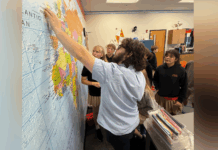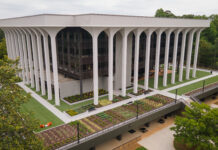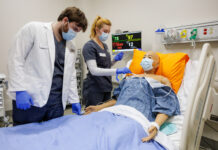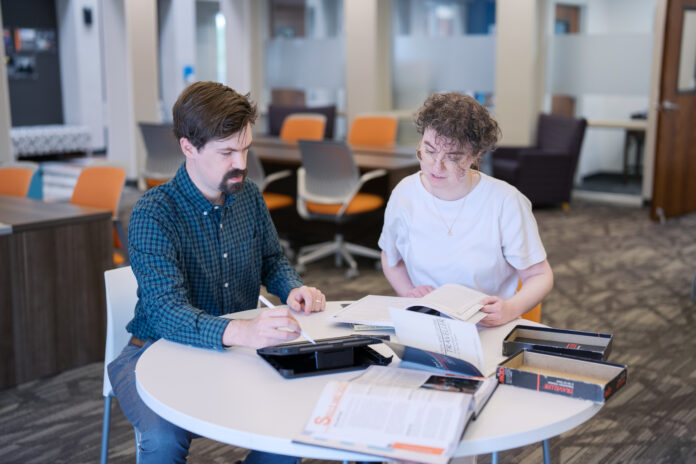
Every year, dozens of Mercer University students dedicate a portion of their summer to conducting research under the direction of their professors. The Mercer Undergraduate Research Scholar (MURS) Training Initiative has traditionally focused on the science, technology, engineering and mathematics disciplines, but applications were open to humanities projects as well this year.
“This change was something that I thought was valuable to better reflect the breadth of research happening at Mercer,” said Assistant Vice Provost for Research Dr. Garland Crawford, who oversees the MURS program. “Our participation from the sciences has always been strong and will remain a major part of MURS. However, it was important that the program continue to evolve and support scholarship across all disciplines. I was very happy to see that we had multiple projects from the humanities interested in summer research.”
The four humanities projects that were funded this summer delved into workplace meaningfulness, tabletop games, the Holocaust and migration in France, and the relationship between the film industry and the Civil Rights Movement.
“Mercer believes that the liberal arts are important. We believe that students should have an understanding of science, they should have an understanding of social sciences, and they should have an understanding of the humanities. It’s refreshing and helpful to see that backed up with money, which is the thing that makes it go,” said Dr. Cameron Kunzelman, assistant professor of communication studies and theater.
Meaningfulness in the Workplace
Rising junior Noah Porter, a religion and psychology double-major, initiated a multidisciplinary project under the mentorship of professors Dr. Paul Lewis and Dr. Shan Ran. Combining his two areas of study, he has been looking at the role that working plays in life meaningfulness.
“The meaningfulness of life has been something I’ve thought about for the past few years, in particular when it came to my journey of coming to Mercer and the process of becoming a professional,” Porter said.
Porter began his research in the spring during an independent study with Dr. Lewis, professor and chair of religion. He read 16 books on varying topics and perspectives surrounding meaningfulness, happiness and flourishing.
“This is the kind of thing that liberal arts education needs to be about, to ask these big questions: What counts as a good life, and how can we know it? How can the social sciences and the humanities work together to give us a better idea of what a good life is?” Dr. Lewis said.
As a pre-clinical student, Porter said he wanted to see how he could help others in their path to finding meaning. People spend the majority of their waking hours at their jobs, and finding ways to flourish in the workplace can help them find fulfillment and purpose in their overall life.
Through the MURS program, he did qualitative research with Dr. Lewis during the first summer session, reading literature to help him delve more into the theoretical aspects of vocation. Then, he worked with Dr. Ran, associate professor and co-chair of psychology, during the second summer session to develop questions for a quantitative survey that will be sent to people in a variety of occupations to measure their ability to flourish within the workplace.
“The goal is to observe patterns of flourishing in the workplace, identify the meaningful practices associated with those patterns, and ultimately develop a blueprint that anyone can use to cultivate meaningfulness in their own work environment,” he said. “As a representative of a generation who seems to struggle most with connecting with these topics of meaningfulness, I want to encourage a larger focus on the more internal explorations that go into shaping the humans we are and wish to become.”
Porter believes people can find meaningfulness by exploring who they are, rather than living a “life at their fingertips,” consumed by social media and digital components.
Dr. Ran said Porter’s perspective as a college student in this research is important, since views of work have most likely shifted with younger generations. In addition, his project demonstrates the value of liberal arts education and how it can help students see the relationships between different disciplines.
“I’m glad that Noah is taking the initiative to draw this connection and asking his own question that has significance in both disciplines,” she said. “To become a good psychologist, if that’s what he’s interested in for his future, it’s important to think both theoretically and empirically. It’s not just about collecting data and finding a pattern in the data; it’s having a meaningful theory and idea behind the project.”
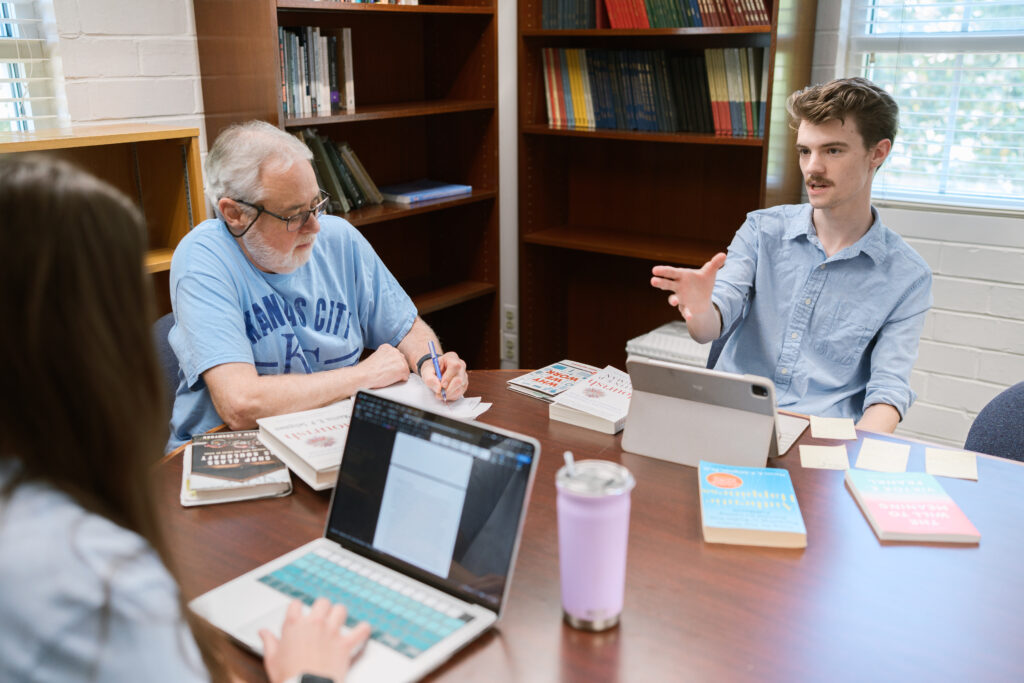
Tabletop Role-Playing Games
Dr. Kunzelman and rising senior Maret McWhorter spent the summer exploring lifepath tabletop role-playing games (RPGs). Dr. Kunzelman said this MURS project fits into his research trajectory. He is a science fiction scholar, but his research has transitioned to physical and tabletop games in recent years.
In traditional tabletop RPGs, such as Dungeons & Dragons, players develop their characters by selecting various skills, attributes and classes and often imagining their own backstories. But in lifepath RPGs, such as Traveller, the character and its past are generated through more systematic methods — like tables and dice rolls.
Dr. Kunzelman and McWhorter studied the design, assembly, operation and functionality of lifepath RPGs. They read publications and manuals for 16 games, from 1977 to 2024; worked through some of the games; and categorized their characteristics, strengths and weaknesses.
“It’s fun to put these things together and think about these things. Beyond that, no one has studied these systematically before,” Dr. Kunzelman said. “There was no existing academic article that is working through the different types of lifepath RPGs and what they do. There is a real gap in the literature, and we are producing work that will be legitimately helpful for the study of these games in this subfield.”
McWhorter, a communication studies and creative writing double-major, works in Dr. Kunzelman’s communication theory research lab and has been involved in game design projects, including creating a classic-style arcade game last fall. However, this was McWhorter’s first time playing or studying lifepath RPGs.
“It’s a really interesting medium in the field of communication. It leans into a little of psychology, creative writing,” McWhorter said. “It’s looking at … the way a player interacts with the game, the way the game thinks it interacts with the player, and how it actually communicates with itself. I just really love the conversation that can happen between the people who play the game.”
Dr. Kunzelman and McWhorter are writing an academic article that details the findings of their extensive research on lifepath RPGs. They also created a commercial lifepath generator system that can be used to develop characters in a variety of lifepath games. They are having conversations with publishers about it and hope to see it on sale in the future, Dr. Kunzelman said. McWhorter drew the illustrations that are included in the booklet and said it features 30 pages of different classes that a character can become.
“I hope that we’re able to create something significant, that MURS is able to continue to finance humanities projects and that we’re able to generate more interest on campus for a game studies minor. I’m very grateful I was able to do this,” McWhorter said.
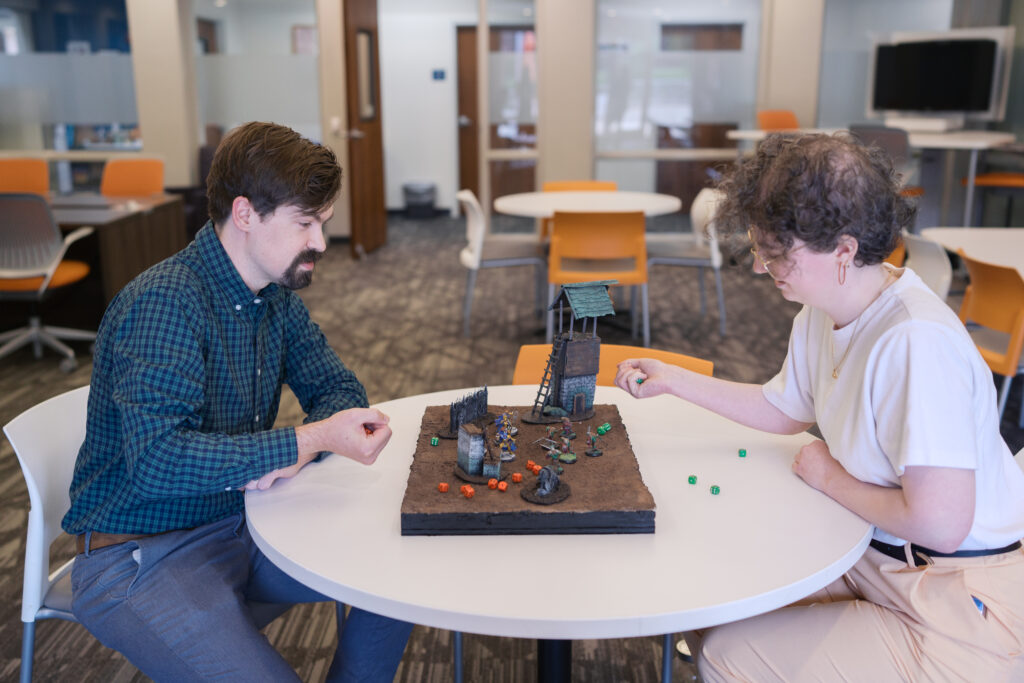
Holocaust and Contemporary Migration in France
Rising senior Ethan Pellegrino conducted preliminary research that helped Dr. Katie Roseau, associate professor of French, launch a new project on the Holocaust and contemporary migration in France.
“For my future, I want to hopefully be a professor in the humanities, and I’ve had Dr. Roseau for a lot of classes,” said Pellegrino, a French and history double-major. “So applying for this was a good opportunity to get behind the scenes of what professors are doing in their research outside of the classroom.”
Dr. Roseau will conduct and analyze oral history interviews from the village of Le Chambon-sur-Lignon, France, which is known for saving Jews during the Holocaust and continuing to welcome asylum-seekers, as well as Paris and Marseille.
“I’m wanting to know how that past memory is truly affecting their decisions to help others, or perhaps it is not so clear cut,” Dr. Roseau said. “As a literary scholar, I’m interested in the metaphors they use and their word choice. France also has this kind of a dual narrative of a … land of welcome but also land of anti-immigration. So I’m interested in seeing how the memory of welcoming or rejecting outsiders plays a role or doesn’t in decisions to do that today.”
For the past two summers, Dr. Roseau has led a Mercer On Mission program in which students serve refugees living in these three French cities. Pellegrino participated in this year’s trip and said the experience brought to life the cities he had researched.
Through MURS, Pellegrino helped to identify scholarly publications so that Dr. Roseau could apply for a Provost Office seed grant, which she was awarded, and fellowships that would allow for more in-depth study in France. He looked at narratives of refugees, asylum seekers and rescuers in France from the 1900s to present day and compiled bibliographies and notes for Dr. Roseau to use in her project.
“Ethan was just fantastic. He’s very meticulous. He’s analytical,” Dr. Roseau said. “I’m still applying for fellowships, so just having this knowledge of migration in France has helped to go that direction. He also helped me to identify oral history projects that already exist. We noticed there’s a big gap. There’s not a lot on migrants in France currently.”
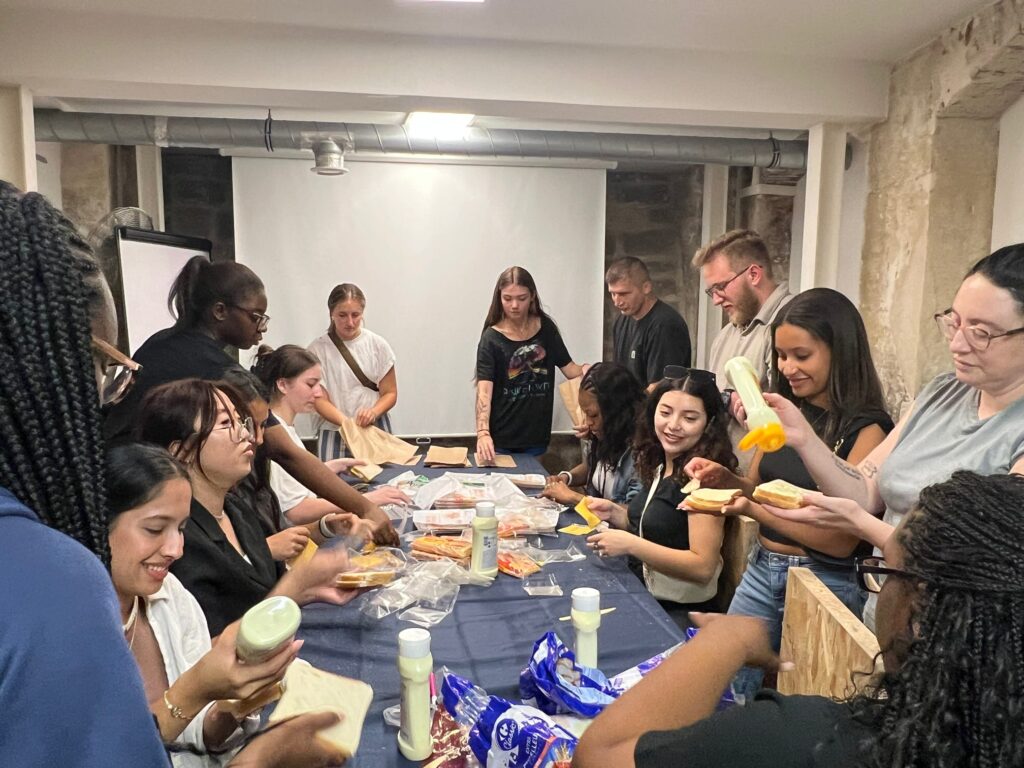
Popular Film and the Civil Rights Movement
This summer, rising senior Sky Grzybowski assisted Dr. Jackie Pinkowitz, assistant professor of media studies and director of film studies, with her book project on the relationship between film and civil rights. Dr. Pinkowitz is tracing how Hollywood frames ideas about race and racial issues throughout the South.
“It’s about the way in which the American film industry responded or attempted to respond to the African American Civil Rights Movement,” Dr. Pinkowitz said. “It’s thinking about the role of popular film in navigating or negotiating with these massive social, cultural, political changes as they’re unfolding in real time around these really complicated ideas about race, gender, sex, sexuality and class.”
Grzybowski, a film studies and philosophy double-major, conducted archival research on Civil Rights exploitation movies produced and released in the mid-1960s. They combed through local and national publications at newspapers.com, tracking the media coverage of each film in this category for about a decade. Grzybowski created an Excel spreadsheet cataloguing stories about the production, release, controversy and reception; interviews with directors and actors; theater listings; ads; and promotional materials for each movie.
“They’re just awful, terrible films. They have terrible production value, but they have really incendiary and kind of amazing promotional materials,” Dr. Pinkowitz said. “I’m interested in how these films circulate culturally and what they tell us about the film industry and … everybody working in the industry. How do they anticipate audience reaction or cultural discourses or cultural anxieties? How are those being exploited or contained or denied? So it’s important to look not just at the film but how they’re being talked about in the industry trade press.”
Dr. Pinkowitz plans to do similar research on integration-era melodramas that were big Hollywood releases and hopes to get more students involved in the project in the future. She and Dr. Rachel Schaff, assistant professor of media studies, are in the process of rebuilding Mercer’s media studies program, and one of their focus areas is incorporating and encouraging more undergraduate research.
“The book is my project, so it’s been interesting working with students,” Dr. Pinkowitz said. “That kind of collaborative work is less common and less automatic than in other fields. It’s interesting to think about how to bring students into my own personal work and to hear their thoughts and perspectives and insights on the results they’re finding.”

